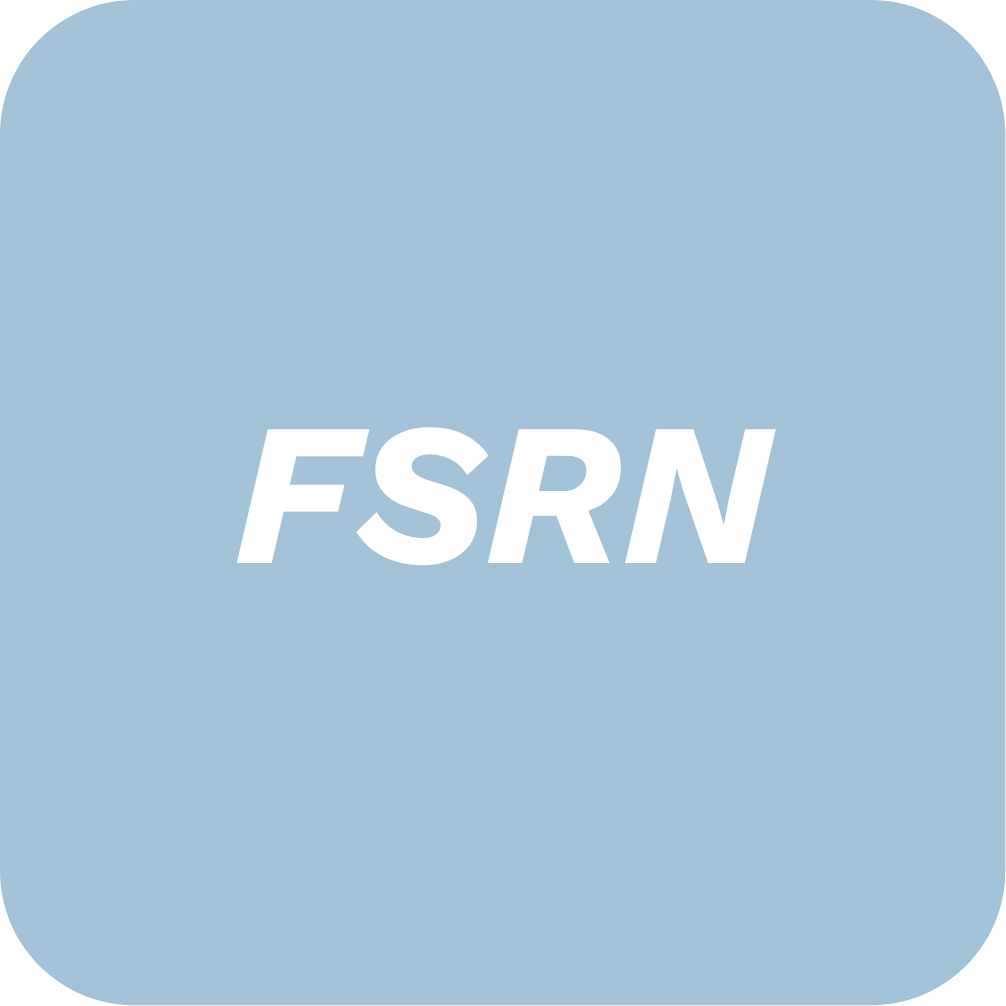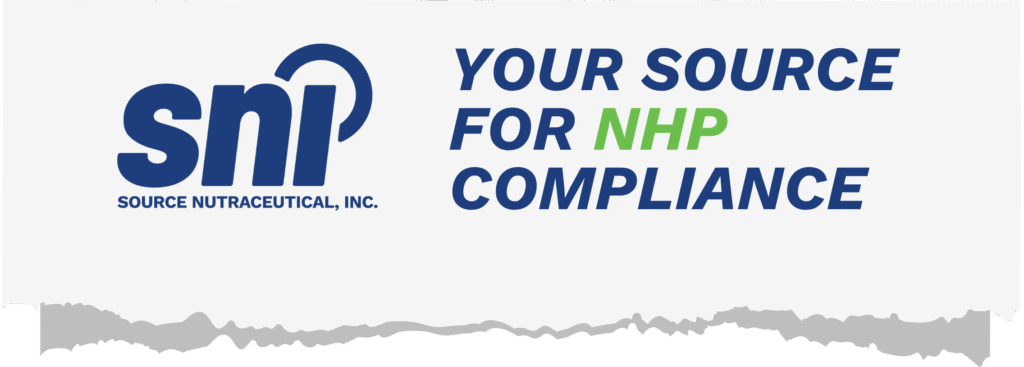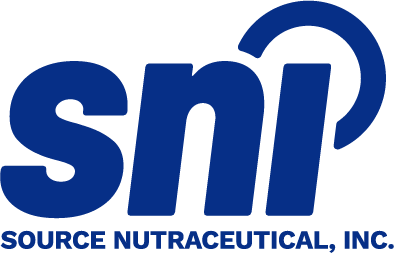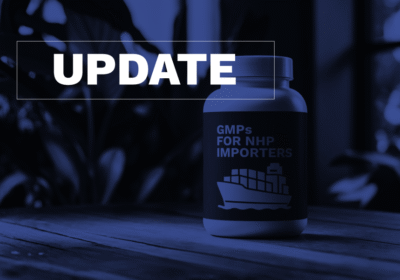In Canada, any business that manufactures, packages, labels, or imports natural health products (NHPs) must hold a valid site licence obtained from Health Canada. This licence confirms that the company complies with the requirements set out in the Natural Health Products Regulations and Site Licensing Guidance Document, including adherence to Good Manufacturing Practices (GMP) and associated regulations.
A site licence ensures that NHPs are handled in a safe, sanitary, and controlled environment, providing assurance to both regulators and consumers. It is a crucial step for companies seeking to sell NHPs in Canada, as it supports regulatory compliance and helps avoid operational disruptions. Understanding the site licensing process is essential for smooth and successful market entry and ongoing business operations.
What is an NHP Site Licence?

A natural health product (NHP) site licence is a mandatory authorization issued by Health Canada that permits a facility to manufacture, package, label, or import natural health products in Canada. This licence is not merely a regulatory formality; it is a legal obligation under the Natural Health Products Regulations, which govern the quality, safety, and efficacy of NHPs sold in the Canadian market.

Importantly, a site licence is only issued to physical sites located within Canada. Any facility involved in manufacturing, packaging, labelling, or importing NHPs must hold a valid site licence for each Canadian location where these activities occur. This requirement ensures that all NHPs are handled in compliance with stringent Good Manufacturing Practices (GMP), covering proper sanitation, controlled environments, detailed record keeping, and robust quality assurance systems.
The Purpose of Site Licences for NHPs
A site licence serves as a regulatory instrument to verify that all manufacturing, packaging, labelling, and importation activities related to natural health products adhere strictly to Health Canada’s prescribed Good Manufacturing Practices (GMP) as mandated by the Natural Health Products Regulations. This licence ensures that facilities implement robust quality management systems designed to maintain product integrity, prevent contamination, ensure batch-to-batch consistency, and ultimately ensure Canadians have access to natural health products (NHPs) that are safe, effective, and of high quality.
By issuing a site licence, Health Canada validates that the facility has the requisite infrastructure, documented procedures, qualified personnel, and control mechanisms to effectively monitor critical processes, including material handling, production, storage, packaging and distribution. The site licence further mandates employee training, comprehensive record-keeping and traceability, facilitating regulatory oversight, and product recalls if necessary.
Ultimately, the site licence functions as a critical quality assurance checkpoint that mitigates risks to consumer health by ensuring that NHPs entering the Canadian market meet stringent safety, efficacy, and quality standards. It establishes a formal framework of accountability and compliance, enabling regulatory authorities to identify and engage with legitimate operators while reinforcing market integrity and public confidence in natural health products.
What Activities Require a Site licence, and Is a Separate Licence Needed for Each?
A site licence is required for any Canadian facility where the following activities related to natural health products (NHPs) take place:

Manufacturing: This includes all processes involved in the production, formulation, or compounding of NHPs.

Packaging and Labelling: Any site where products are packaged, repackaged, labelled, or relabelled before sale.

Importation: Locations where NHPs are received and cleared through customs for distribution within Canada.
Each facility that conducts manufacturing, packaging, labelling, or importing activities for NHPs must hold its own valid site licence. If a company operates multiple locations within Canada, such as one facility for manufacturing and another for packaging, each site must obtain a separate site licence. A site licence is specific to the physical address and the licensed activities performed at that location. It cannot be transferred or shared between sites.
This ensures Health Canada can maintain regulatory oversight and compliance at every critical control point within the supply chain. It also guarantees that each site meets GMP requirements relevant to its specific activities and function, maintaining consistent safety and quality standards throughout all NHP operations.
Site Licence Application Requirements and Process
To obtain a site licence for natural health products (NHPs) in Canada, an applicant must submit a complete application to Health Canada for review. The submission must include detailed information demonstrating that the facility and its operations comply with all applicable regulatory requirements. This process serves as a paper-based audit of the site.
Specifically, a site licence application must contain the following information:
Applicant Contact Information: The full name, address, email address and telephone number of the applicant. If applicable, the facsimile number must also be provided. This ensures clear lines of communication between the applicant and Health Canada.
Description of Activities: A clear statement specifying which of the following activities the applicant intends to perform – manufacturing, packaging, labelling, or importing natural health products. This identifies the scope of operations to be licensed.
Site Addresses for Manufacturing, Packaging, or Labelling: If manufacturing, packaging, or labelling is proposed, the applicant must provide the address of each building where these activities will occur. This allows Health Canada to evaluate each physical location involved in the production of an NHP.
Site Addresses for Importation and Storage: If importing NHPs, the applicant must provide the address of each building where the imported products will be stored. This ensures proper control and traceability of products entering the Canadian market.
Sterile Dosage Form Declaration: For each activity identified, the applicant must state whether the activity will involve natural health products in sterile dosage form. This is important because sterile products require additional controls and stringent Good Manufacturing Practices.
Dosage Format Declaration: For each site, the type of dosage format(s) must be included.
Quality Assurance Report (QAR): A report from a qualified quality assurance professional must be submitted, certifying that the buildings, equipment, practices, and procedures used for each specified activity comply with the requirements outlined in Part 3 of the Natural Health Products Regulations. This report demonstrates that the site meets the necessary GMP standards and quality control measures to ensure product safety and integrity and must be signed by the Quality Assurance Person (QAP) responsible for the facility.
These application requirements provide Health Canada with a complete and accurate overview of the applicant’s operations, allowing for a thorough assessment of compliance before a site licence is granted. Adhering to these detailed requirements is essential to facilitate timely approval and maintain regulatory standards within the Canadian natural health product sector. Applicants should ensure that information submitted to Health Canada is complete and accurate, to avoid potential delays and rejections. However, applicants should always anticipate additional Health Canada requests and questions, which may delay the licensing timelines.
NHP Site Licence Issuance

After a site licence application is submitted, Health Canada evaluates whether the submission meets the requirements set out in the Natural Health Products Regulations. A licence will be issued or amended only if the application is complete, any additional information requested by Health Canada is provided, and the applicant has not included any false or misleading statements. When these conditions are satisfied, the Minister will issue or amend the site licence and assign a unique site licence number to the approved facility.
NHP Site Licence Rejection
If Health Canada refuses to issue or amend a site licence , the applicant will receive a formal notice outlining the reason for the refusal. This notice will also advise the applicant that they may request a reconsideration within 30 days. If a request is made, Health Canada is required to provide the applicant with an opportunity to be heard. The application will then be reconsidered, and if the original decision is upheld, a final notice of refusal will be issued with a clear explanation of the outcome.
Site Licence Amendment and Notifications

A site licence must be amended before a facility undertakes any operations beyond the scope of its current authorization. This includes adding a new activity such as importing, packaging, labelling, manufacturing, performing an authorized activity at a new physical location, introducing a new dosage form, or conducting sterile activities that were not previously authorized.

To apply for an amendment, the licensee must submit an application that includes the existing site licence number, a description of the proposed changes, and a quality assurance report (QAR). This report, signed by the quality assurance person (QAP), must confirm that the facilities, equipment, practices, and procedures related to the amended scope continue to comply with Part 3 of the Natural Health Products Regulations.
Relinquishing a Site Licence Authorization
Licensees may voluntarily remove activities or buildings from their licence by submitting an amendment request. The application must include a signed declaration by the QAP, identifying what is being relinquished, along with an attestation confirming continued compliance with Part 3 of the Natural Health Products Regulations. If complete, Health Canada will approve the requested amendment and update the site licence .
Changes That Require Notification, Not Amendment

Some changes do not require a formal amendment but must still be reported to Health Canada. If the facility updates its contact information, such as contact or QAP names, telephone numbers, or email addresses, it must notify Health Canada within 60 days of the change. Notification is also required when there is a substantial change to a building, piece of equipment, practice, or procedure that was previously verified through a quality assurance report (QAR).
Site Licence Validity and Renewal Timelines
In Canada, a site licence for natural health products is valid for one year from the date of issuance unless renewed in advance. Renewal periods vary based on how long the licence has been held. Licences active for under three years are renewed for one year. If the licence has been held for three to nine years, the renewal period is two years. For licences held for nine years or more, the renewal period extends to three years.
Renewals take effect the day after the original anniversary date. To maintain continuity, a renewal request must be submitted at least 30 days before the licence expires.
Requirements for Renewal

To renew a site licence, three conditions must be met. The request must be submitted on time, any additional information requested by Health Canada must be provided, and renewal must not pose a risk to consumer health. If documentation is incomplete, Health Canada may request additional information before proceeding with the review and/or renewal of the site licence.
Suspension and Cancellation of a Site Licence
A site licence may be suspended if Health Canada has reasonable grounds to believe there has been non-compliance or false information has been submitted. Typically, a licensee is notified in advance and given 90 days to respond or correct the identified issues. However, if there is an immediate risk to consumer health, Health Canada may suspend the licence without prior notice.
If the issue is resolved within 90 days, the licence may be reinstated. If no response is provided or the issue remains unresolved, Health Canada will cancel the licence and issue a formal cancellation notice.
GMP and NHP Site Licence

Good Manufacturing Practices (GMPs) form an essential foundation for site licensing of natural health products (NHPs) in Canada. To obtain or renew a site licence , applicants must demonstrate compliance with the GMP requirements outlined in the Natural Health Products Regulations. This includes maintaining appropriate premises, equipment, sanitation programs, qualified personnel, and documented standard operating procedures that ensure products are consistently safe, effective, and accurately labelled. A qualified quality assurance person (QAP) must verify compliance before products are released into the market.

GMP standards apply to all site activities with stricter controls for sterile products. Compliance is mandatory and closely monitored to protect consumer health and maintain product quality. Failure to meet these standards can result in refusal to issue, or can suspend, or cancel a site licence, making GMP adherence a critical regulatory obligation for any business operating in Canada’s natural health product market.
Learn more about the GMP requirements for NHPs in our article here.
Site Licensing Performance Standards
The performance standard, or review time, varies depending on the type of site licence submission.
New site licence applications, renewals, and amendments: Typically take 30 to 90 business days depending on whether they fall under Stream 1, 2, or 3. *Health Canada has been experiencing delays in this area.
Foreign Site Reference Number (FSRN) applications, yearly updates, and modifications: Generally reviewed within 30 to 60 business days, depending on Stream 1 or 2. *Health Canada has been experiencing delays in this area.
Notifications: Typically acknowledged within 15 business days.
Performance targets aim for 90% of applications to be completed within these timelines. However, in fiscal year 2020–2021, due to the COVID-19 pandemic and the urgent need to increase hand sanitizer supply, Health Canada prioritized related applications. As a result, only about 28% of new site licence applications and 35% of amendments met the service standards, while all FSRN applications achieved the target. Renewals were temporarily excluded from performance measurement due to extensions granted during that period.
Beyond the Health Canada Issued Site Licence

Natural health product (NHP) site licensing involves more than just obtaining a site licence from Health Canada. While a site licence authorizes the manufacturing, packaging, labelling, or importing of NHPs, facilities must also navigate a variety of local regulations that impact daily business operations.

Local requirements such as zoning bylaws, waste management protocols, health and safety codes, fire regulations, business licensing, signage restrictions, and permitted hours of operation can significantly affect product sales, distribution, business continuity, and overall compliance. For NHP companies, failing to meet these municipal or regional obligations can be just as risky as operating without a valid site licence for the manufacturing, packaging, labelling, or importation of NHPs.

For example, a facility with a valid NHP site licence has a manufacturing facility in Toronto. Although they hold a site licence authorized by Health Canada, the company must also ensure the facility complies with Toronto’s municipal zoning laws. If the chosen site is zoned for residential or commercial retail use rather than industrial manufacturing, the facility cannot operate there without a zoning variance or relocating. Moreover, the facility must meet the city’s health and safety standards, waste disposal rules, fire codes, and obtain a local business licence. Failure to comply with these local regulations could lead to fines or suspension of operations despite holding a valid Health Canada issued site licence.
Common Challenges of Obtaining a Site Licence for NHPs
Although Health Canada takes proactive efforts to outline what information must be submitted in a site licence application or renewal, common challenges arise, which can contribute to delays and licensing complications.
Documentation Gaps: Gaps in documentation can delay a site licence application or lead to refusal. Incomplete forms or unclear records slow regulatory review, increase workload, and may require costly resubmissions. This is especially true for facilities with large product lines or complex formulations.
Challenges in GMP Interpretation for NHPs: Understanding and applying GMPs for natural health products (NHPs) can be difficult, especially for companies new to Health Canada’s requirements. Variations in product categories and facility operations often lead to confusion and misinterpretation of GMP guidelines. These misunderstandings can result in corrective actions or even site licence suspensions. Without clear guidance or expert advice, companies can struggle to maintain compliance and protect product quality.
Challenges in Managing Licensing Timelines: Many applicants face pressure to expedite the licensing process due to competitive markets and strict regulatory deadlines. However, unexpected delays caused by regulatory backlogs, requests for additional information, or product modifications are common and should be anticipated. Without proper project management and realistic timelines, deadlines can quickly slip, leading to frustration and resource strain.
Proactive planning to address these common challenges can streamline the licensing process and lead to faster regulatory review. By anticipating documentation needs, clarifying GMP expectations, and maintaining strong internal coordination, companies can reduce the likelihood of delays. This not only improves compliance outcomes but also supports a more predictable path to market.
Licensing Considerations for Foreign Sites

Foreign sites, meaning facilities located outside of Canada that manufacture, package, or label natural health products (NHPs) intended for sale in Canada, are not eligible to hold a Canadian site licence. However, these facilities may apply for a Foreign Site Reference Number (FSRN) from Health Canada. An FSRN serves as official recognition that the foreign site complies with Canadian Good Manufacturing Practices (GMP), as outlined in Part 3 of the Natural Health Products Regulations.

Although an FSRN is not mandatory, it provides several advantages. It allows Canadian site licence holders to reference a foreign site’s GMP compliance in their own applications, which can help streamline the approval process. It may also reduce the need for multiple importers to submit the same GMP evidence for a single foreign facility, easing the administrative burden and improving regulatory efficiency.

To obtain an FSRN, a foreign site must submit a complete application to Health Canada demonstrating compliance with GMP requirements. This application must be linked to an active or pending Canadian site licence, as foreign facilities must be listed as annexed sites on the Canadian licence to maintain full chain-of-custody oversight. Once approved, the FSRN is issued by Health Canada and must be kept up to date, with renewal and amendments submitted annually or as required based on the type of GMP evidence provided.
Final Remarks
Securing and maintaining a site licence for natural health products (NHPs) in Canada involves more than meeting federal requirements. It demands thorough preparation, complete documentation, and a clear understanding of regulations. Whether navigating GMP compliance, managing review timelines, or addressing regulatory updates, companies must remain organized and informed to avoid delays or compliance issues.
To ensure success, applicants should consult Health Canada’s official regulations and guidance documents, including the Natural Health Products Regulations and GMP guidelines. These resources provide essential direction. For tailored support throughout the licensing process, SNI offers regulatory expertise to help you plan, file, and maintain your NHP site licence with confidence and ease.
Useful references:
- Site Licensing Guidance Document
- Natural Health Products Regulations
- Service Standards for Site licence Application Review under the Natural Health Product Regulations

Discover how SNI can help your team navigate site licensing and quality control for natural health products (NHPs). We offer comprehensive support with site licence applications and renewals, Foreign Site Reference Numbers (FSRNs), and compliance with NHP quality requirements.
With our experienced team handling the complexities of licensing, you can focus on growing your business instead of managing regulatory hurdles!
💊 More about our services here.
💡 Compliance is easy with the right support!
📩 info@sourcenutra.com
⬇️ Send us a request for support or an introductory call
Frequently Asked Questions
What is a site licence, and who needs one?
A site licence is an authorization issued by Health Canada’s Natural and Non-prescription Health Products Directorate (NNHPD) that permits a facility to manufacture, package, label, or import NHPs for sale in Canada. All entities engaged in these activities must hold a valid site licence to ensure compliance with the Natural Health Products Regulations and Good Manufacturing Practices (GMPs).
Can a foreign site obtain a Canadian site licence?
No, foreign sites cannot obtain a Canadian site licence. However, they may apply for a Foreign Site Reference Number (FSRN) from Health Canada. An FSRN indicates that a foreign site complies with Canadian GMPs and allows Canadian importers to reference the foreign site’s GMP compliance in their site licence applications, streamlining the importation process. All foreign sites must be attached to a valid Canadian site licence.
Is obtaining an FSRN mandatory for foreign sites?
No, obtaining an FSRN is not mandatory. However, it offers several benefits, such as:
- Allowing Canadian importers to reference the foreign site’s GMP compliance in their site licence applications, streamlining the importation process.
- Reducing the need for each importer to submit separate GMP evidence for the same foreign site.
- Potentially expediting the review process for site licence applications.
To apply for an FSRN, a foreign site must submit the Foreign Site Reference Number Authorization Form to Health Canada, via a valid Canadian site licence holder demonstrating compliance with Canadian GMP requirements.
How can a foreign site apply for an FSRN?
A foreign site can apply for an FSRN by submitting the Foreign Site Reference Number Authorization Form to Health Canada, demonstrating compliance with Canadian GMP requirements. However, it is advisable to submit through a valid Canadian site licence holder to expedite the process per Health Canda’s direction and prioritization attempts. If approved, the foreign site is assigned an FSRN, which must be maintained and updated annually.
What are the consequences of submitting an incomplete or non-compliant application?
Starting March 21, 2023, the NNHPD began to refuse submissions for site licence s and FSRNs based on administrative and GMP deficiencies. These deficiencies apply to all submission types, including new applications, amendments, notifications, renewals, and GMP evidence updates. To avoid refusal, applicants must ensure their submissions are complete and compliant with the regulatory requirements.
✷ The content on this website, including information presented in this post, is provided for general informational purposes only and does not constitute legal, regulatory, or professional advice. While efforts are made to ensure accuracy, laws and regulations vary by jurisdiction and may change over time. Readers should not rely on this information as a substitute for advice from qualified legal or regulatory professionals. We disclaim any liability for actions taken based on this content, and users are encouraged to seek guidance specific to their circumstances.




